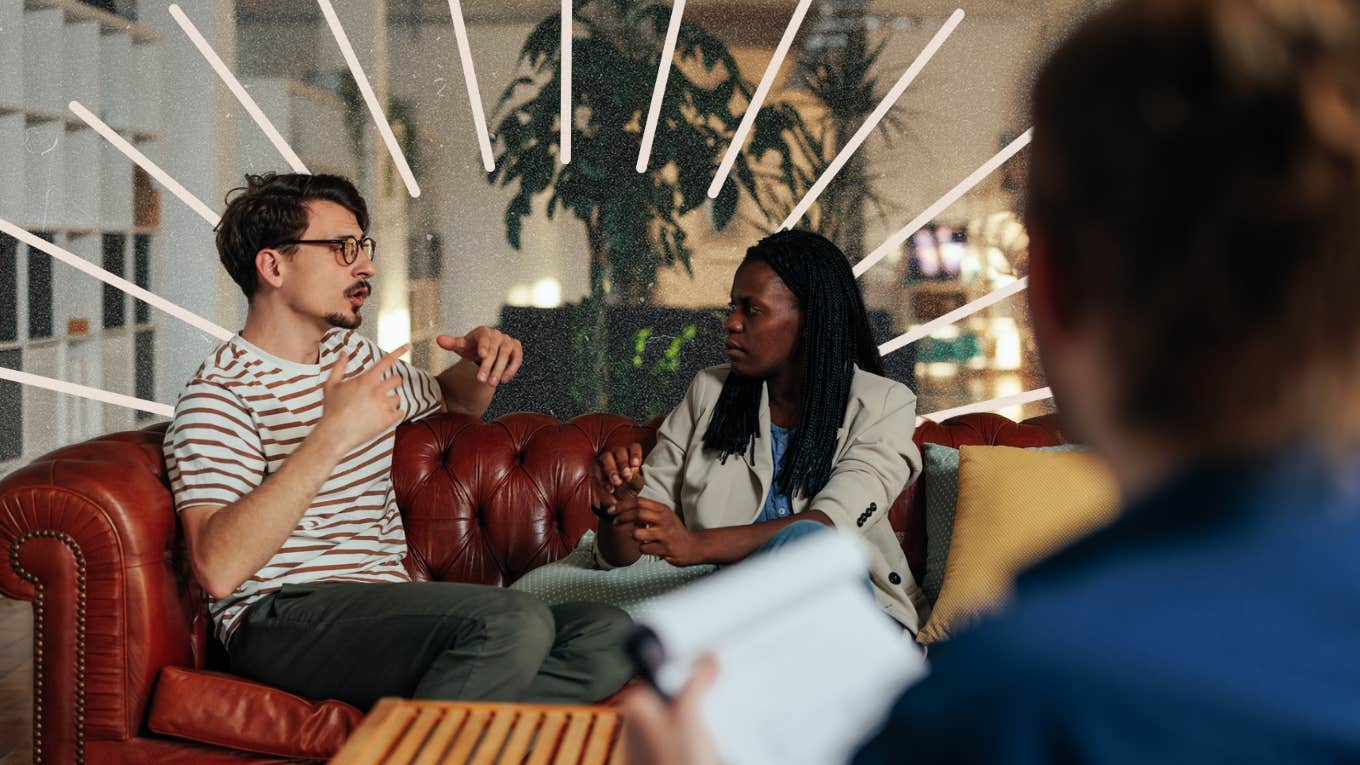
It's normal for counseling to open old wounds, it's not normal to feel hopeless.
By Shlomo Slatkin
Last updated on Nov 27, 2023
Photo: bernardbodo | Canva

As it is hard to address years of conflict in a 60-minute session of marriage counseling — or, if you’re lucky, a 90-minute session — it is not uncommon that you may walk out at the beginning of therapy feeling a little reactive or wanting to respond to what your spouse said.
Here's what to do when you feel worse after marriage therapy.
1. Ask, "Do you feel yourself getting more agitated by your spouse now since therapy has begun?"
You may even have some of your worst fights after those first few sessions. If this is the case, please know that you are normal. One client likened it to peeling off an old band-aid: It may not feel good in the beginning, but the initial discomfort allows for the healing process to occur.
RELATED: 8 Experts Reveal The Problems That Can't Be Fixed In Couple's Counseling
2. Ask, "Have you noticed “problems” that you didn’t previously notice?"
While sometimes things have to get worse to get better, if you are walking away from your marriage counseling sessions weekly feeling even more pessimistic with no sense of hope, you may want to reassess what you are doing.
After all, some of the issues that come up in counseling may open old wounds. But over time, addressing these wounds and finding new ways to resolve them together should help you feel hope for your future — together or apart.
RELATED: 5 Healthy Expectations Within Marriage, According To A Relationship Therapist
3. Ask, "Are you catching yourself quoting your therapist against your spouse, "Well my therapist said...'?"
Some post-therapy reactions are not helpful to your marriage, like aggression or abuse. Couples also should not twist the therapist's words to use against their partner. For instance, "Dr. Smith said you're manipulative, and he's correct!"
While there are many good therapists out there, there are also plenty who are not competent at helping couples and can undermine your relationship.
RELATED: How To Rehabilitate A Marriage In Trouble, Even When Your Spouse Won't Do The Work
4. Ask, "Are you suddenly having doubts as to whether you should stay together?"
As I said in the beginning, you may feel some growing pains at the beginning of therapy — but if you feel undermined or threatened by the process, it's worth thinking about whether a different therapist would be better.
5. Can couples therapy make things worse?
If you are going to couples therapy to make your marriage better, a good marriage counselor will help work with you to make that goal a reality. Instead of focusing on what you aren't getting from counseling, focus on moving forward and what you can learn from these sessions.
Good marriage counseling helps you work together and doesn’t take sides or place doubts in your mind about the relationship. It encourages you to connect, provides real hope that your relationship can heal, and empowers you with the tools to do so.
Related Stories From YourTango:
RELATED: What Happened When Our Marriage Counselor Called Out My Husband’s 'Good Ole Boy' Mentality
More for You:
Shlomo Slatkin is a Licensed Clinical Professional Counselor, Certified Imago Relationship Therapist (Advanced Clinician), and an ordained Rabbi.
This article was originally published at themarriagerestorationproject.com. Reprinted with permission from the author.
